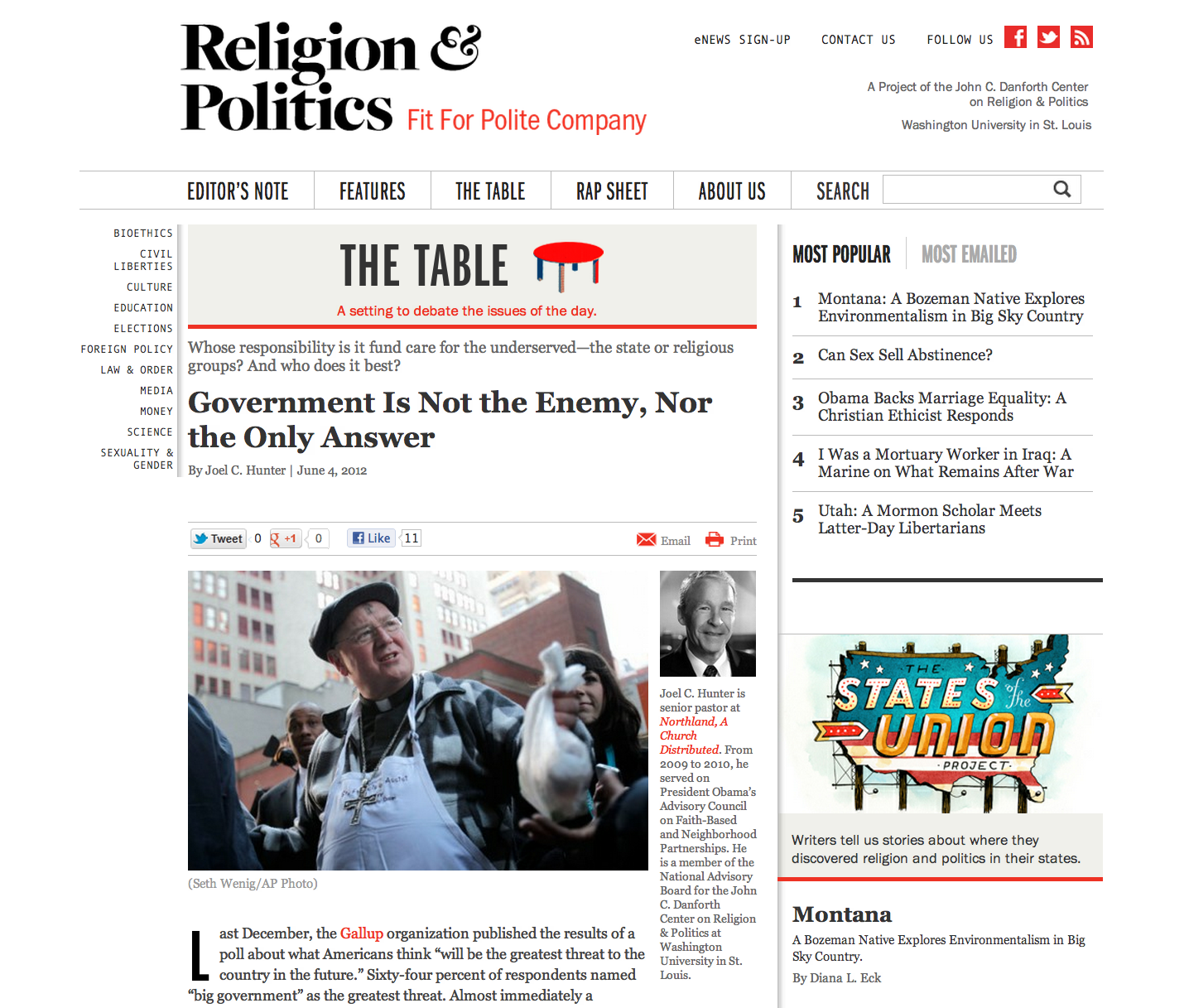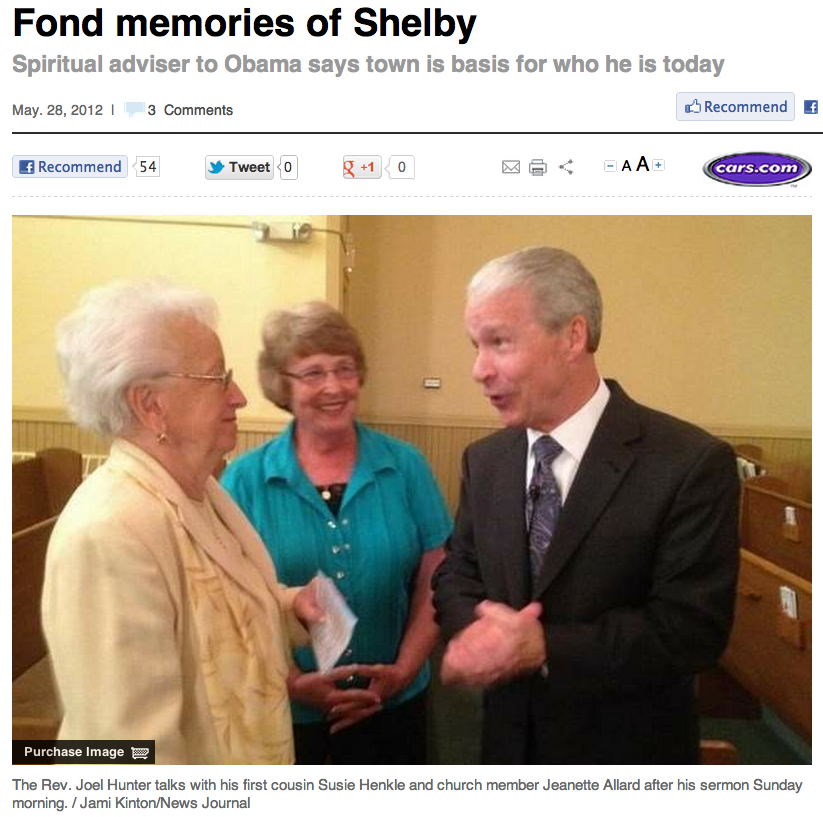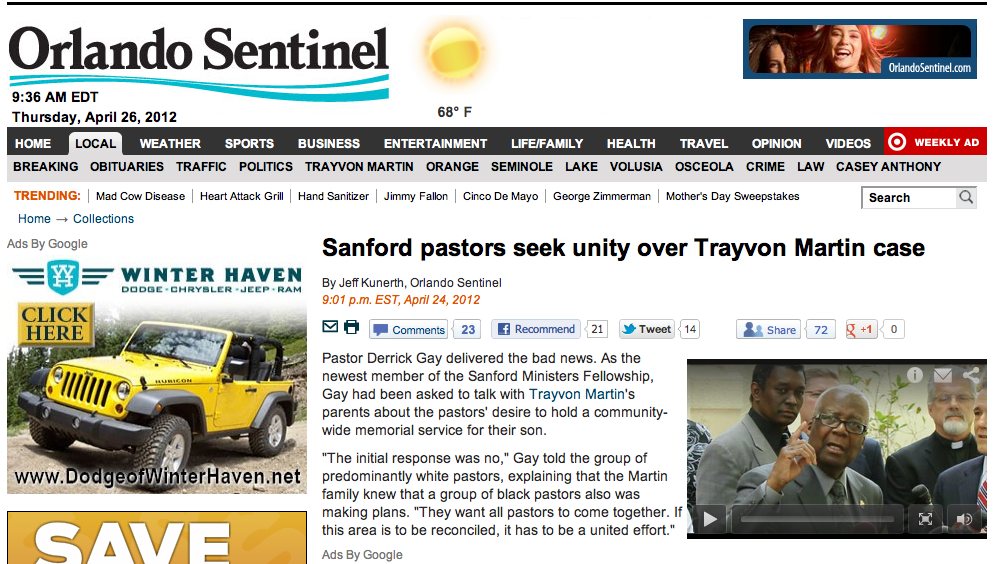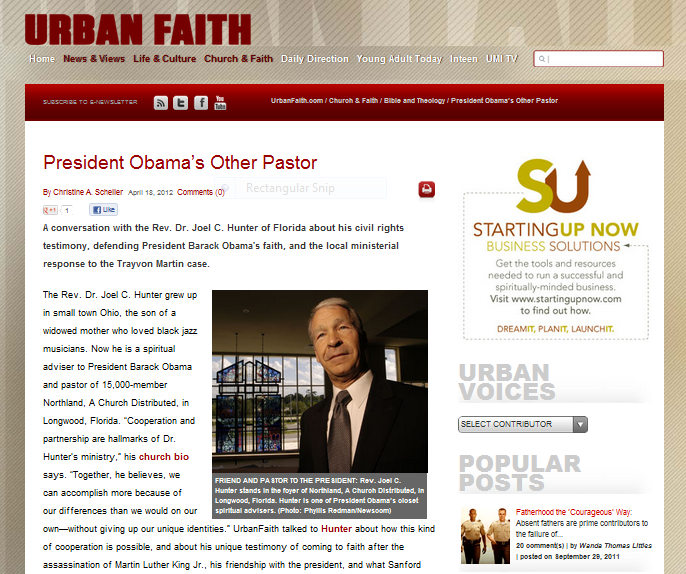How the Church Should Respond to Same Sex Marriage
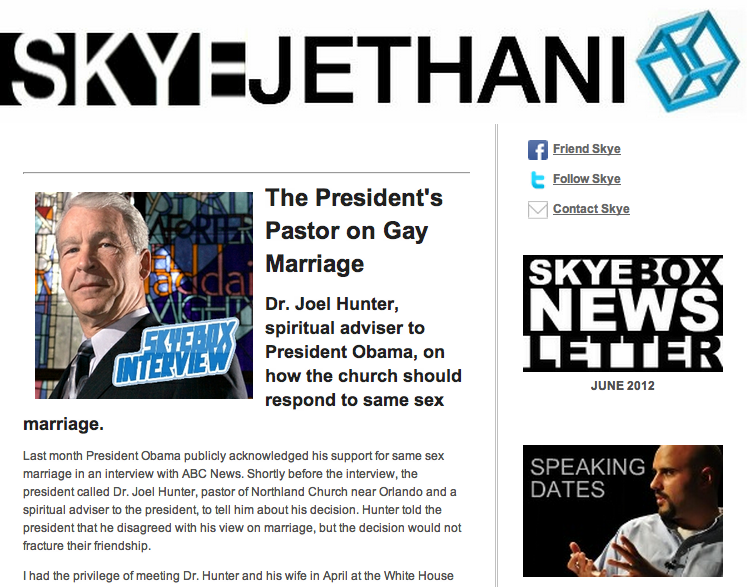 Last month President Obama publicly acknowledged his support for same sex marriage in an interview with ABC News. Shortly before the interview, the president called Dr. Joel Hunter, pastor of Northland Church near Orlando and a spiritual adviser to the president, to tell him about his decision. Hunter told the president that he disagreed with his view on marriage, but the decision would not fracture their friendship.
Last month President Obama publicly acknowledged his support for same sex marriage in an interview with ABC News. Shortly before the interview, the president called Dr. Joel Hunter, pastor of Northland Church near Orlando and a spiritual adviser to the president, to tell him about his decision. Hunter told the president that he disagreed with his view on marriage, but the decision would not fracture their friendship.
I had the privilege of meeting Dr. Hunter and his wife in April at the White House Easter Prayer Breakfast. As we walked along the grounds of the White House and West Wing, I asked Dr. Hunter about his friendship with President Obama. He told me what he said to NBC News last week: “I love him and he’s a friend.” We also discussed how his church members have responded to their evangelical pastor being so close with a Democratic president. His response was both wise and full of grace.
So when news broke about President Obama’s “fully evolved” position on same sex marriage, I decided to contact Dr. Hunter about it. Specifically, I wanted to know what he was saying to his congregation about the matter, and how he thinks other Christians should react to the rapidly shifting cultural views on marriage. Once again, his thoughtful remarks struck me as both wise and gracious.
What are you telling people in your church about the President’s announcement last week that he supports same sex marriage?
First, it gives us a wonderful platform to reemphasize the definition of marriage as God has laid it out in Scripture. We are not free to redefine it once God has defined it. Secondly, I am saying we have to be careful not to enter into a culture war. We have gay people in our congregation. They are people made in the image of God, and we want them to come close to him in Christ and follow God. So we have to remember that this is a hurtful issue for many, many people and we have to be very respectful as we talk about it.
Third, we have to remember that this is a leadership issue. The church should not try to manage society. 1 Corinthians 5:12 says “what have we to do with judging outsiders?” Our business is the Church. We have to be careful not to expect people to follow the same values that Christians follow. Even though marriage is a sacred thing to us, that doesn’t mean it is to everybody. So as this conversation continues, we need to differentiate what is expected from a biblical, obedient Christian and what’s expected from someone who is acting from another worldview. They may have every right to make whatever legal arrangements they want for their relationships, but we have to make sure that the church is protected to do what it believes it is right and not violate its conscience.
Rather than fighting against same sex marriage, do you feel we should be working harder to protect religious liberty?
I think the conversation needs to be extended to include protecting religious liberty. Right now the conversation is only about the civil rights of gay people, but let’s also lift up the rights of those who want to practice their religion without being afraid of lawsuits. If gay marriage becomes civil law, then we need protections for the churches that choose not to marry gay couples. We need to know we will not be open to lawsuits. We do not want to be forced into something that would violate our conscience and our faith.
Was that part of your conversation with President Obama?
When the President called me, I told him that his support of gay marriage is going to be perceived by some Christians as a war on religion. I don’t agree with that, but we’re talking about perception here. I also told him there is an opportunity to lift up both sides--respect for gay people and respect for religious practices that limit the covenant of marriage.
How did the President respond?
He is there. The President is a Christian, and he gets it. He knows what we believe about traditional marriage, and he doesn’t want to violate religious conscience. But there is still a lot of conversation that needs to happen to see how this will actually work out. Until we hear statements and see policy that protects churches and religious liberty, then I’m not sure everyone will be reassured.
Are you concerned that this announcement will spark a new round of culture wars?
Yes, I am. It’s starting right now as people are beginning to organize a response, and given the history of some of these leaders it could become another culture war. But we need to be a third voice saying we don’t need to go there.
What advice do you give pastors who are scared to address marriage or gay rights issues because they’ve become so politicized?
I absolutely understand why pastors are reluctant. Some pastors live in fear of upsetting people because they don’t want to lose their jobs, but many of us are also concerned about dividing the congregation. But we still have to talk about God’s “Plan A” for marriage and raise up examples of exemplary marriages. We don’t have to approach this as a culture war and say the nation is going to hell in a hand basket. We can talk about the positive principles of Scripture without attacking those who disagree with us. I think more pastors feel equipped to do that.
What about critics who say the divorce rate within the church is doing more to harm marriage than anything else? Have we lost moral authority on this issue in the culture?
They certainly have a point, and they can point out our failings. But our platform will always be Scripture. We must stand on Scripture with an understanding that what it says is very difficult for people.
FIND THIS ARTICLE AT: http://us2.campaign-archive1.com/?u=87188c8737bc50c1a2fb8e2c9&id=5696f25902&e=d3ef06aa8b
